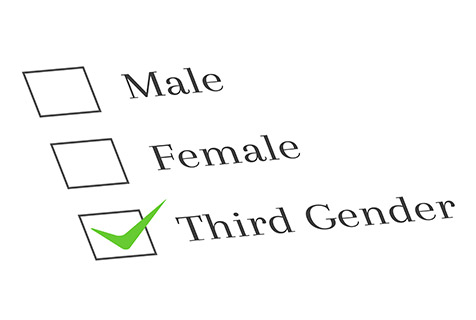THE THIRD GENDER CATEGORY IN PAKISTAN: IS THERE A CHOICE?
THE THIRD GENDER CATEGORY IN PAKISTAN: IS THERE A CHOICE?
The Third Gender Category in Pakistan: Is There a Choice?
Legal recognition of gender non-conforming individuals remains an important unresolved policy issue because there is no singular approach to accommodate the unique identity of such individuals legally. In the last decade, some countries (like Nepal, India, Pakistan, and Bangladesh) have opted to create a third legal gender category to recognise the unique identity of gender non-conforming and/or intersex individuals. However, there is limited research on how these individuals respond to the legal third gender category.
Muhammad Azfar Nisar’s research published in Gender & Society is based on ethnographic fieldwork with the Khawaja Sira community in Pakistan. The author attempts to understand their attitude towards the legal third gender category created by the Supreme Court of Pakistan during the proceedings of a landmark case from 2009 to 2011. While the decision to create the legal third gender was accompanied with much fanfare, the response of the Khawaja Sira community to this new gender category has been underwhelming. Nisar’s research suggests that a large majority of the Khawaja Sira community continue to legally register as men. This seemingly paradoxical choice problematises the instrumental and symbolic value of the legal third gender.
Practical concerns primarily motivate this paradoxical choice of the Khawaja Sira community about their legal gender. A Khawaja Sira registering as a third gendered individual faces family pressure, religious stigma, and high administrative burden. On the other hand, there are hardly any material benefits associated with the legal third gender category to offset these significant personal and social costs. Hence, for the Khawaja Sira community—most of whom live in extreme poverty—their practical (material and religious) interests are served better by choosing the masculine gender legally. The Khawaja Sira community, therefore, make a purposeful patriarchal bargain by choosing the masculine legal gender to take advantage of the privileges associated with the masculine identity in a patriarchal socio-legal order while giving up the symbolic benefits associated with the legal third gender.
If the legal third gender is to become a more viable option for the social integration of gender non-conforming individuals; governments and policymakers, especially in developing countries, must associate with it tangible material benefits—such as improved job opportunities or dedicated welfare programS—to offset the social costs that individuals must bear by choosing the legal third gender.
Nisar, M. A. (2017). (Un) Becoming a Man: Legal Consciousness of the Third Gender Category Pakistan. Gender & Society, 32(1), 59-81.
https://doi.org/10.1177/0891243217740097
About the Author
Muhammad Azfar Nisar is Assistant Professor at the SDSB, LUMS. He teaches business ethics and corporate social responsibility, and philosophy of administrative sciences. His research interests include social policy, critical management studies, and street-level bureaucracy. His research has been featured in the Journal of Public Administration Research and Theory, Public Administration Review, and Gender & Society.
Email: azfar.nisar@lums.edu.pk

